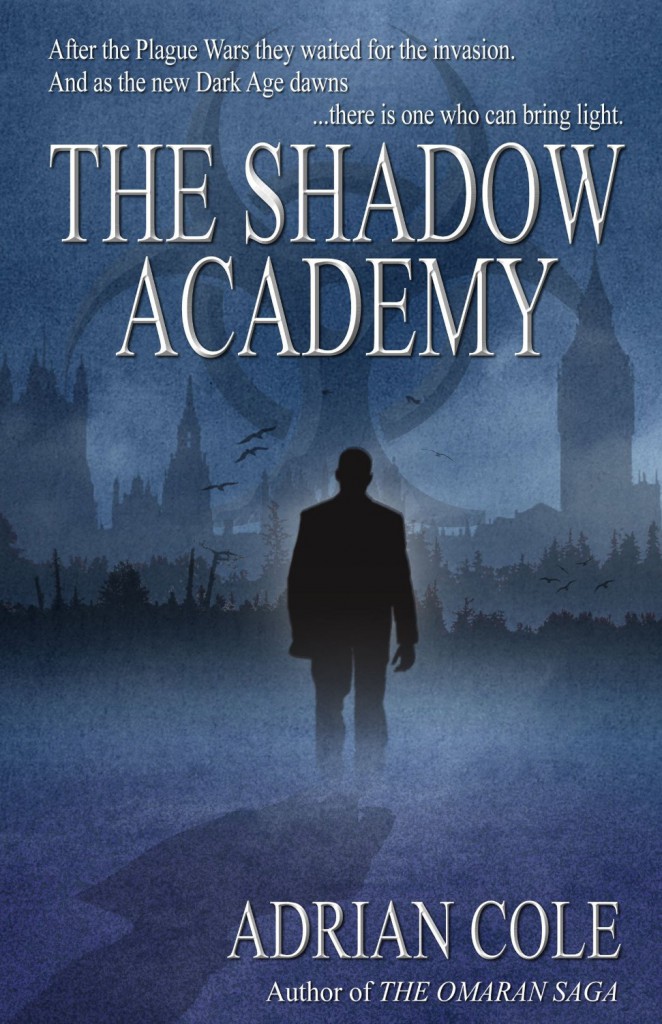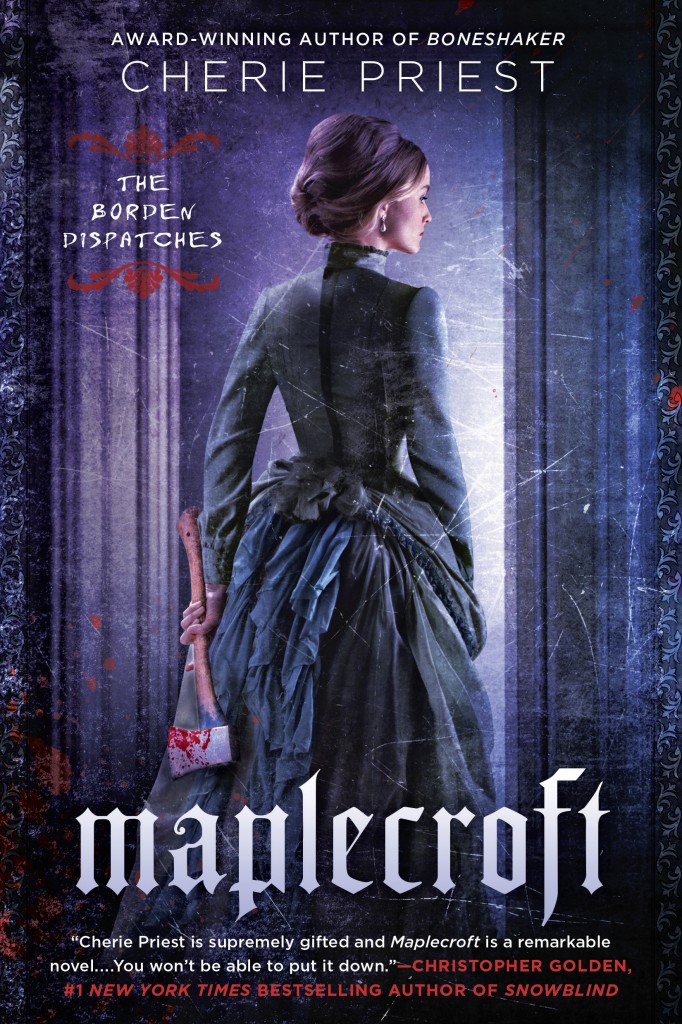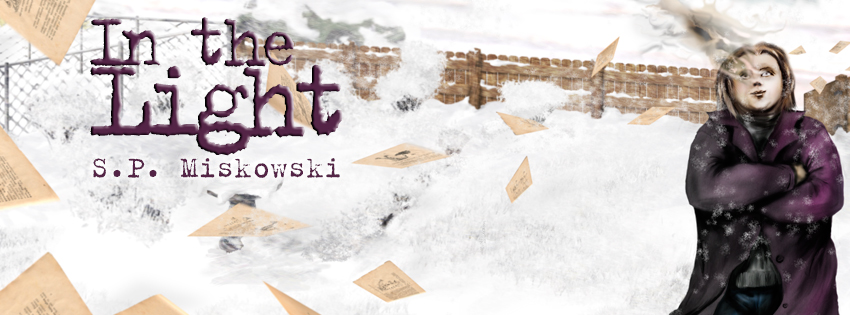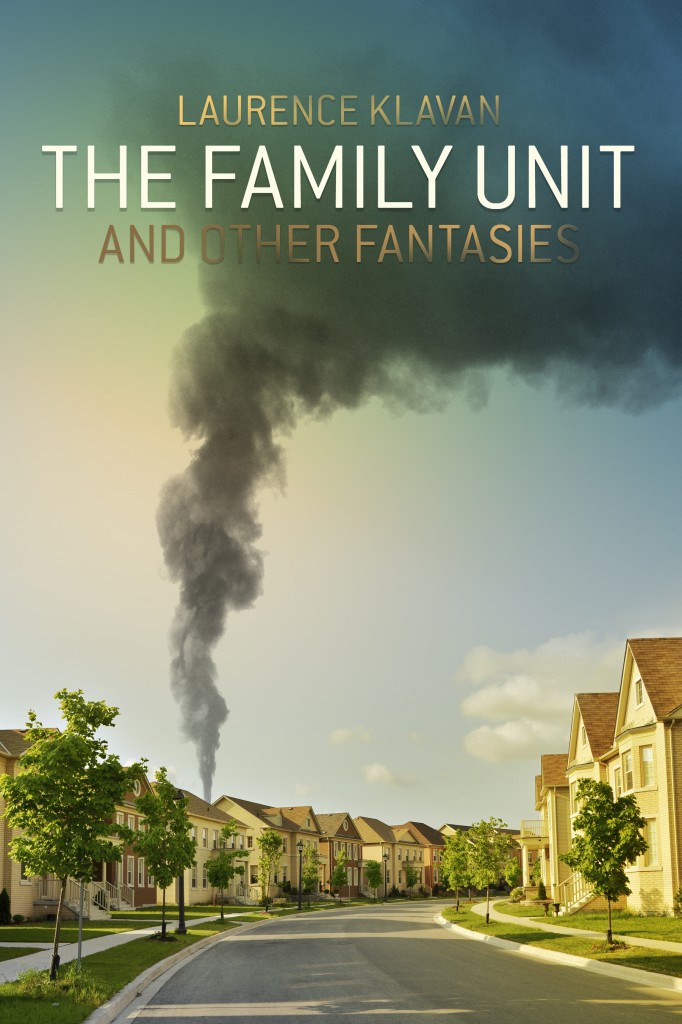Welcome to this week’s installment of The Scariest Part, a recurring feature in which authors, comic book writers, filmmakers, and game creators tell us what scares them in their latest works of horror, dark fantasy, dark science fiction, and suspense. (If you’d like to be featured on The Scariest Part, please review the guidelines here.)
My guest is Adrian Cole, whose latest novel is The Shadow Academy. Here’s the publisher’s description:
After the Plague Wars they waited for the invasion. And as the new Dark Age dawns… there is one who can bring light.
In a world little more than a whisper away from ours, the islands of Grand Brittannia lie just off the shores of the deeply forested content of Evropa, the dark and forbidding realm of legends scarcely remembered.
Grand Brittannia, itself almost completely a place of deep forest and mystery, has at its heart the crumbling, anachronistic administrative city of Londonborough. From here the Central Authority wields power over the Islands and exercises its control rigidly and clinically. Since the rigours of the Plague Wars, some hundred years in the past, when almost the entire population of the world was wiped out and the gradual decline of civilization began, industry and technology have atrophied, their development now strictly vetted by the Authority.
Out on the far-flung coasts, a network of ancient fortress ports wait in readiness for an invasion that some say will never come, their ancient, declining Academies committed to the rigours of training the defenders of the Islands. These Academies are subjected to regular inspections by Enforcers from Londonborough, and their native inhabitants are constantly being swelled by the young military graduates from the Authority’s own Military Academies in the center. Into a cauldron of intrigue and subterfuge that is the town and Academy of Petra comes Chad Mundy, the Authority’s replacement for Drew Vasillius, a veteran teacher who has committed suicide. At least, that is what he’s been told…
And now, let’s hear what the scariest part was for Adrian Cole:
The Shadow Academy introduces us to a world very much like our own, but one where the landscape and culture of the population have been changed by a distant series of catastrophes known as the Plague Wars. Grand Britannia, equivalent to our British Isles, is almost totally overgrown with forest and only a handful of cities exist, from the central Londonborough, which exercises firm and sometimes ruthless control, to the outlying satellites, such as Petra Dumnoniorum in the remote South West.
Chad Mundy is a young teacher, sent to his first posting to Petra and its bleak Academy, to educate its students in English and to train them in hand-to-hand combat. He enters an environment that is even more insular than he had anticipated, where he begins to uncover more than a few hints of rebellion against the Authority that rules both centrally and locally, and against the weakened Christian religion.
The unease that Mundy gradually feels through the first part of the book begins to take on a deeper, more tangible form when one night he accompanies some of the staff of the Academy across the river to meet some of the more openly insurgent factions and is told, secretly, that his predecessor, formally believed to have committed suicide, was murdered.
Mundy feels the hostility of this strange landscape, with its crumbling buildings and derelict ships, the treacherous currents of the river and the suggestion of the supernatural. City born and bred, he feels more than ever out of his depth in a region that has a subtle beauty about it, but where an undercurrent of deep-seated power is stirring. Even at this stage in the novel, the storm that is building meteorologically can be sensed, gathering far away, but inevitably coming.
After a gradual build-up, the book abruptly plunges Mundy into a sequence of action where he is being pursued by a gang of men, clearly intent on harming him. His flight back to Petra across the river, with its intimation of “blood on the water” and his stumbling across strange carvings on the doors of some of the houses, add to his rising fears. He is cornered, weaponless against cold-blooded opponents.
At this stage of the novel, it is not clear to the reader whether the potential supernatural elements of the novel are to be realised. The superstition of the local people, specifically encapsulated in the terror of the caretaker, Skellbow, links to a secret past in and around Petra, whose dark secrets pulse with the increasing threat of menace.
To me the “Scariest Part” is this scene of terrified flight, which captures not only form the platform for a journey for Mundy into an even darker region, but starts the unravelling of the nature of the true powers that are work in his disturbing world.
Adrian Cole: Website / Goodreads
The Shadow Academy: Amazon / Goodreads / EDGE
Adrian Cole was born in Plymouth, Devonshire in 1949. He is currently the Director of College Resources in a large secondary school in Bideford, where he now lives with his wife Judy, son Sam, and daughter Katia. He remains best known for his Dream Lords trilogy as well as his young adult novels, Moorstones and The Sleep of Giants.





